Mother, wife, author, retired lawyer -- American! Stay tuned to this page for daily history stories: The American Revolution, World War II, aviation milestones, presidential history.... any of these (and more) are fair game! Monday is always "Medal of Honor Monday." History posts & commentary are copyright 2013-2018 by Tara Ross.
Don't wanna be here? Send us removal request.
Text
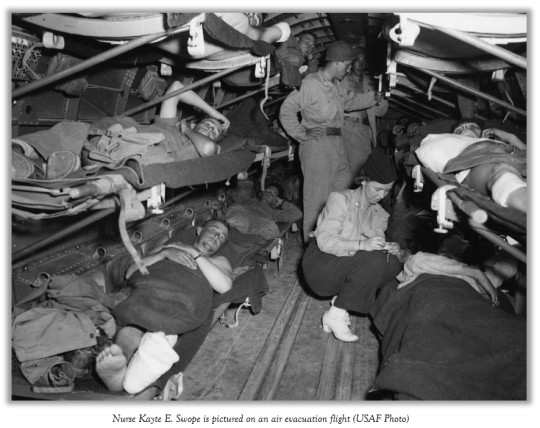
This Week in History: Nurses at the Invasion of Italy
During this week in 1943, Allied forces launch an amphibious assault on Sicily. “Operation Husky,” as the attack was codenamed, would successfully capture that island, providing Allied forces a base from which to liberate mainland Italy.
But it wasn’t just men who landed in Sicily. American nurses were there, too, providing vital support.
“The presence of nurses at the front,” a U.S. Army report concludes, “improved the morale of all fighting men because soldiers realized that they would receive skilled care . . . . Hospitalized men recovered sooner when nurses cared for them. Troops in the field figured that ‘if the nurses can take it, then we can.’”
FULL STORY: https://www.taraross.com/post/tdih-wwii-nurses-italy
5 notes
·
View notes
Text
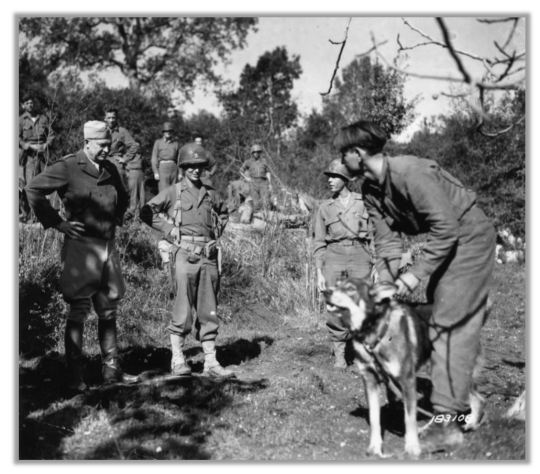
This Day in History: Chips the War Dog
On this day in 1943, a dog becomes a World War II hero. Chips was a German shepherd-collie-husky mix who’d traveled with the U.S. Army from New York to Europe.
His family knew they had a special dog on their hands. When the Army put out a call for good dogs who could serve on sentry or patrol duty, the Wren family donated Chips.
“It killed my mother to part with him,” John Wren later said. He was a mere toddler when Chips left for war. “But Chips was strong and smart, and we knew he’d be good.”
In the end, Chips was gone for more than 3 years. During that time, he traveled the world, serving in North Africa, Italy, and France, among other places. He even met British Prime Minister Winston Churchill and U.S. President Franklin D. Roosevelt.
FULL STORY: https://www.taraross.com/post/tdih-chips-dog
4 notes
·
View notes
Text

This Day in History: George Washington, "hero of the Monongahela"
On this day in 1755, a young George Washington becomes the “hero of the Monongahela.” Only one year earlier, he’d been given an early command, but then forced into a disgraceful surrender at his hastily constructed Fort Necessity.
He would finally have a chance to redeem himself.
It was the second year of the French and Indian War. Washington was in a bit of an awkward position. He wanted to get back into the military game, but if he tried to join the British army, he would be expected to join as a captain. This rank was a demotion: At Fort Necessity, he’d been a colonel.
The young and ambitious Washington was never one to take a demotion.
FULL STORY: https://www.taraross.com/post/tdih-young-george-washington
17 notes
·
View notes
Text

This Day in History: History of the Liberty Bell
On this day in 1776, the Declaration of Independence is formally read in public for the first time. Philadelphia’s city bells toll, gathering people for the event.
The most famous of Philadelphia’s bells is the Liberty Bell, of course. Do you know the story of that iconic bell and why it has a crack in it?
The bell was first commissioned for Philadelphia’s state house in 1751. At the time, the Speaker of the Assembly specifically requested that the bell be inscribed with a Bible verse: “Proclaim Liberty thro’ all the Land to all the Inhabitants thereof” (Leviticus 25:10).
FULL STORY: https://www.taraross.com/post/tdih-liberty-bell
#tdih#otd#this day in history#history#history blog#America#liberty bell#independence day#declaration of independence#sharethehistory
20 notes
·
View notes
Text

Medal of Honor Monday: Benjamin Salomon
On this day in 1944, a U.S. Army Dental Corps officer bravely defends his field hospital. Captain Benjamin “Ben” Salomon remains the only dentist to receive the Medal of Honor.
Maybe he would have been as surprised as anyone? He’d left dentistry behind when he first joined the Army. Instead, the young Jewish American initially served in the infantry. He was an expert shot, and he earned the respect of his fellow soldiers.
“Ben Salomon was the best instructor in infantry tactics we ever had,” his commanding officer reportedly said. “He gave everybody who ever met him a real lift. He had a way of inspiring people to do things that they might not have done otherwise.”
Salomon wanted to stay in the infantry, but the Army had other ideas. By June 1944, he was a Captain in the Dental Corps, and he’d been deployed to Saipan where an intense battle was being waged.
FULL STORY: https://www.taraross.com/post/tdih-ben-salomon-moh
#tdih#otd#this day in history#history#history blog#medal of honor#medal of honor monday#sharethehistory
5 notes
·
View notes
Text
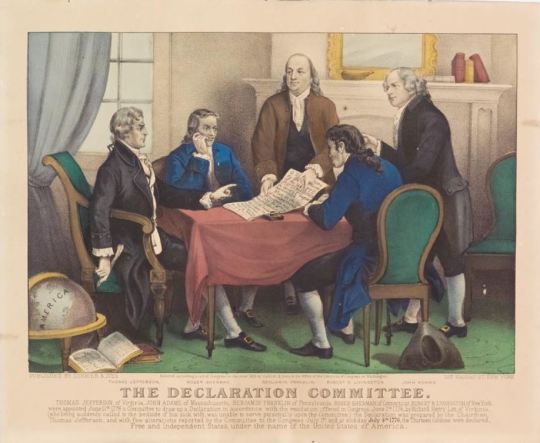
This Day in History: Happy Independence Day!
On this day in 1776, the Continental Congress adopts our Declaration of Independence. It had already resolved on July 2 that “these United Colonies are, and, of right, ought to be, Free and Independent States . . . .” Now it formally adopted a written document, too.
It took nearly a month to write the Declaration. You may know that Thomas Jefferson was the primary author, but he had help, too.
What is the rest of the story?
FULL STORY: https://www.taraross.com/post/tdih-independence-day
#tdih#otd#this day in history#history#history blog#america#american revolution#declaration of independence#independence day#sharethehistory
11 notes
·
View notes
Text

This Day in History: John Koelsch's bravery in Korea
On this day in 1951, a Navy pilot works to save a downed Marine. John “Jack” Koelsch would later receive the Medal of Honor for his action: He was the first helicopter pilot to be so honored.
Lieutenant (j.g.) Koelsch was then serving with a Helicopter Squadron aboard USS Princeton. He’d already served one tour of duty in Korea and was due to rotate home. He didn’t want to go, though. He specialized in pilot rescues and was good at it.
He knew he was needed. He chose to stay.
FULL STORY: https://www.taraross.com/post/tdih-john-koelsch-moh
6 notes
·
View notes
Text
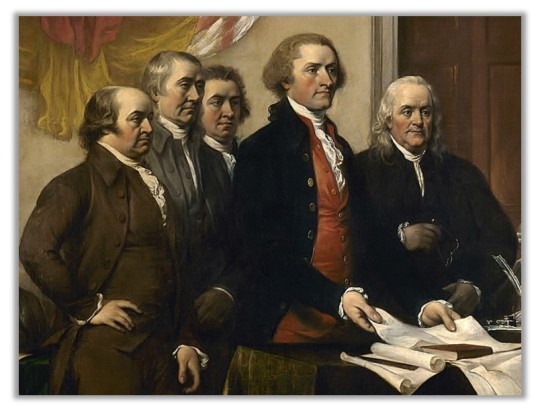
This Day in History: America Declares Independence
On this day in 1776, the Continental Congress declares America’s independence! Did you know that this vote actually occurred on July 2, not July 4?
“That these United Colonies are,” congressional delegates resolved, “and, of right, ought to be, Free and Independent States; that they are absolved from all allegiance to the British crown . . . .”
There would be no more attempts to reconcile with Great Britain.
John Adams was elated, and he thought that July 2 would be celebrated as a memorable day in American history. He wrote Abigail: “The Second Day of July 1776, will be the most memorable Epocha, in the History of America.”
Well, it didn’t quite work out that way, did it? ;) Instead, Americans have chosen to celebrate July 4 as our Independence Day. On that day, Congress finally approved a formal, written Declaration of Independence.
FULL STORY: https://www.taraross.com/post/tdih-july2nd
#tdih#otd#this day in history#history#history blog#America#Declaration of Independence#independence day#july 4th#sharethehistory
32 notes
·
View notes
Text
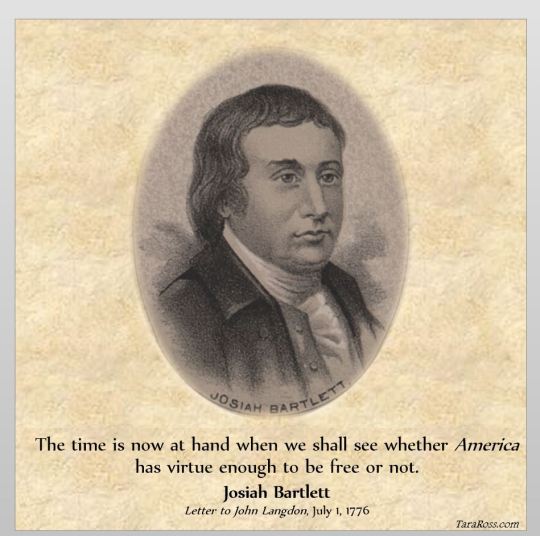
This Day in History: Josiah Bartlett, Signer
A signer of the Declaration of Independence made this statement mere days before it was signed. We are one year out from America's 250th birthday! I imagine he would think this statement is still true today. What do you think?
Dear regular readers: Full-fledged history stories return tomorrow. :)
5 notes
·
View notes
Text

Medal of Honor Monday: Franklin D. Miller
On this day in 2000, a hero passes away. Sergeant Major Franklin D. Miller was a United States Army Special Forces soldier and a Medal of Honor recipient. His heroism had come in January 1970 as he led a joint American-Vietnamese reconnaissance mission deep into enemy-controlled territory.
That mission started out smoothly, but then disaster struck.
It was about 11:00 a.m., and then-Staff Sergeant Miller and his point man (Hyuk) were moving slightly ahead of the others. Suddenly, shock waves rocked the forest. One of Miller’s men had accidentally tripped a booby trap. The resulting explosion left most of the team badly injured.
FULL STORY: https://www.taraross.com/post/tdih-franklin-miller-moh
6 notes
·
View notes
Text

This Day in History: Quentin Walsh's Navy Cross
On this day in 1944, a Coast Guardsman leads a daring mission, capturing hundreds of Germans and freeing dozens of American POWs. Then-Commander Quentin R. Walsh would ultimately receive a Navy Cross for his actions on this day so long ago.
A Coast Guardsman engaged in ground combat? Not exactly what you might expect.
Walsh was in an unusual spot, though: After World War II began, he was dispatched overseas to work with the U.S. Naval Forces Staff in London. He helped plan for D-Day, preparing plans to rehabilitate and activate French ports after they were captured from the Germans.
FULL STORY: https://www.taraross.com/post/tdih-quentin-walsh
#tdih#otd#this day in history#history#history blog#America#world war ii#us navy#us coast guard#sharethehistory
3 notes
·
View notes
Text
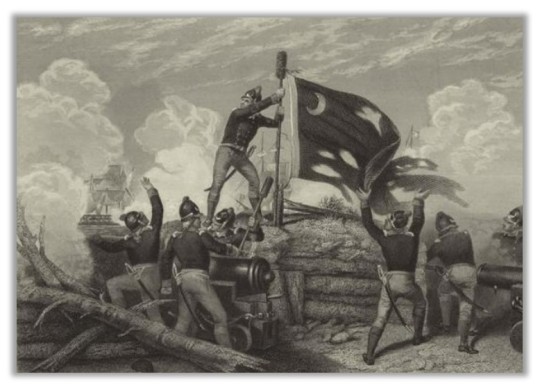
This Day in History: Battle of Fort Sullivan
On this day in 1776, the British prepare to attack Fort Sullivan, near Charleston. They would soon go down in a stunning defeat. Perhaps you won’t be too surprised to hear that June 28 is still celebrated in South Carolina!
British planning for the attack began early—maybe too early. The British Army had been under siege in Boston since April 1775. British officers needed a plan. How could they restore their grip on the colonies? By the fall of 1775, they were already planning an expedition to the Carolinas. They hoped to win back territory with the help of local Loyalists.
The early start, of course, gave the Patriots plenty of time to figure out what was being planned.
FULL STORY: https://www.taraross.com/post/tdih-fort-sullivan
9 notes
·
View notes
Text

This Day in History: Battle of Cherbourg
On this day in 1944, Allied forces bombard Cherbourg, France. It had been mere weeks since the D-Day landings—but Allied leaders were bound and determined to recover Cherbourg from the Germans. They really needed that port!
They especially needed it after the events of June 19.
A huge storm struck Normandy that day. The damage was massive, and it threatened to cripple the Allied effort.
FULL STORY: https://www.taraross.com/post/tdih-battle-cherbourg
5 notes
·
View notes
Text
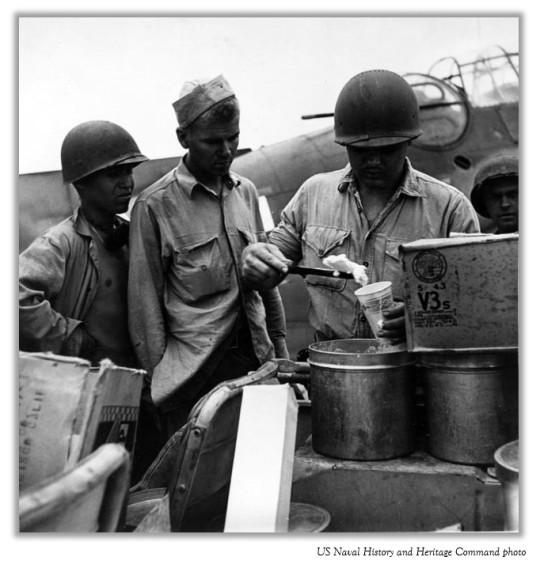
This Day in History: WWII's Ice Cream Barges
On this day in 1942, USS Lexington is stricken from the Naval Register. She’s been called an “iconic warship of the US Navy,” but do you know about her connection with ice cream, refrigerated World War II barges, and the United States military?
Yes, ice cream. You read that right. Ice cream was far more important to the war effort than you might guess.
It didn’t start with Lexington, though. Thestory really begins in 1914, when alcohol was banned aboard Navy vessels and facilities. The order was not well received, as you might imagine. The media poked fun at the rule, and a group of sailors even renamed a captured vessel “USS Piffle” (which means “nonsense”).
Nevertheless, the rule went into effect, followed by Prohibition nationwide. As industries scrambled to adapt, some beer breweries modified their machinery so they could make ice cream. Similarly, many saloons became diners with soda fountain counters.
And, yes, the military also turned to ice cream.
FULL STORY: https://www.taraross.com/post/tdih-ice-cream-wwii
7 notes
·
View notes
Text

Medal of Honor Monday: Joseph Edward Muller
On this day in 1908, a hero is born. Joseph Edward Muller would go on to receive the Medal of Honor for his actions in World War II.
Like so many other heroes in that generation, Muller came from modest beginnings. The Massachusetts native was the 4th of 11 kids, and he’d struggled to help his family as a young man, at least in part because his father had died of the flu when he was just ten years old.
“I didn’t see much of my brother during the depression years,” one of his brothers would later say. “Unable to find work, he joined the Civilian Conservation Corps, moving from camp to camp.”
Muller’s heroism came on May 15, 1945, in Okinawa. His platoon had become pinned down by the enemy. Or, at least, they were until Muller swung into action.
FULL STORY: https://www.taraross.com/post/tdih-joseph-muller-moh
#tdih#otd#this day in history#history#history blog#America#World War II#medal of honor#medal of honor monday#sharethehistory
8 notes
·
View notes
Text

This Day in History: Battle of the Philippine Sea
On this day in 1944, Americans win a decisive victory at the two-day Battle of the Philippine Sea. The Japanese had been trying to defend the Mariana Islands, but now its navy would be crippled, leaving the United States Navy in command of the Pacific for the remainder of World War II.
“[T]he Battle of the Philippine Sea remains the greatest carrier duel of all time,” historian Barrett Tillman concludes. “In terms of flattops directly engaged, it exceeded all that preceded it.”
Twenty-four aircraft carriers, total, were involved in the battle (15 American versus 9 Japanese). But Americans had more than just a numerical advantage: The Japanese had already lost many of their more experienced pilots in earlier Pacific battles, and they were now relying on newer pilots with less training. By contrast, American pilots were generally well-trained, with much more combat experience.
FULL STORY: https://www.taraross.com/post/tdih-battle-philippine-sea
14 notes
·
View notes
Text

This Day in History: Thomas Jefferson on Spending
On this day in 1808, Thomas Jefferson writes a letter. "[T]he same prudence which in private life would forbid our paying our own money for unexplained projects," he notes, "forbids it in the dispensation of the public monies."
"Unexplained projects." Yikes. What would he say if he could see us today?
Dear regular readers: Full-fledged stories return tomorrow. Happy Thursday!
#tdih#otd#this day in history#history#history blog#thomas jefferson#budget#federal funding#sharethehistory
3 notes
·
View notes